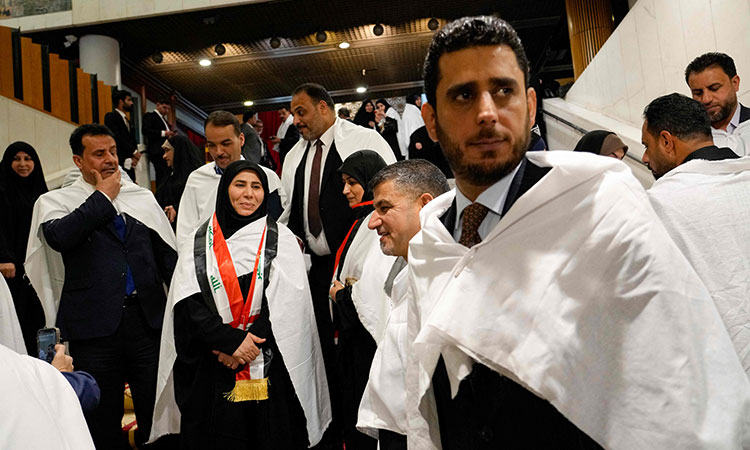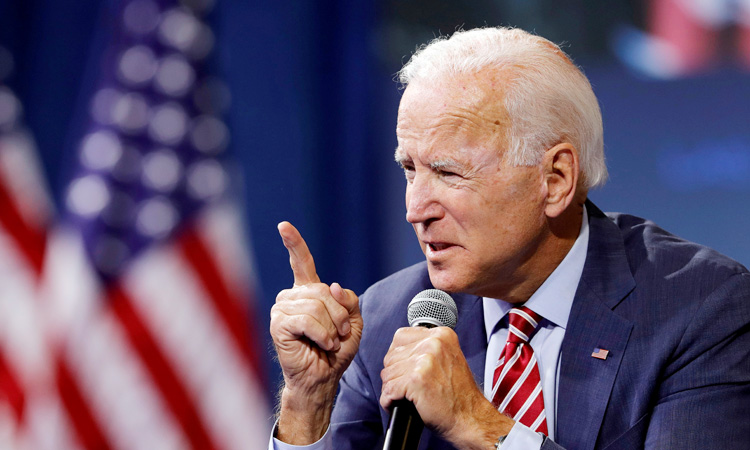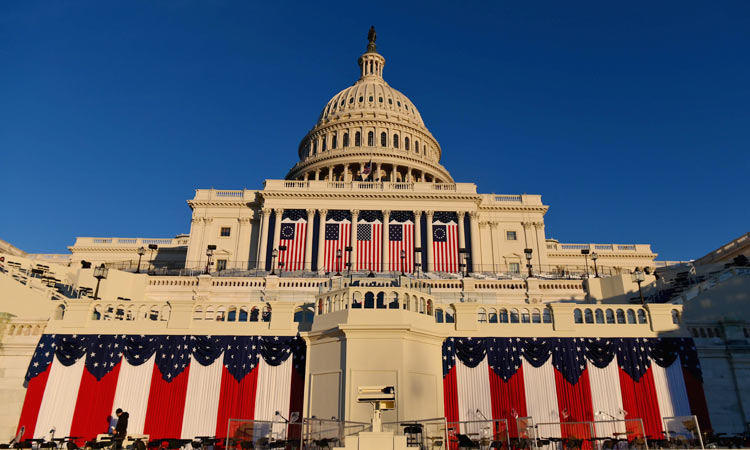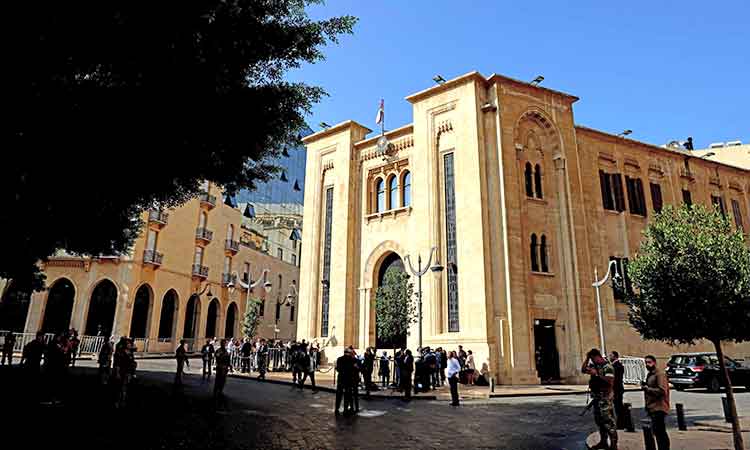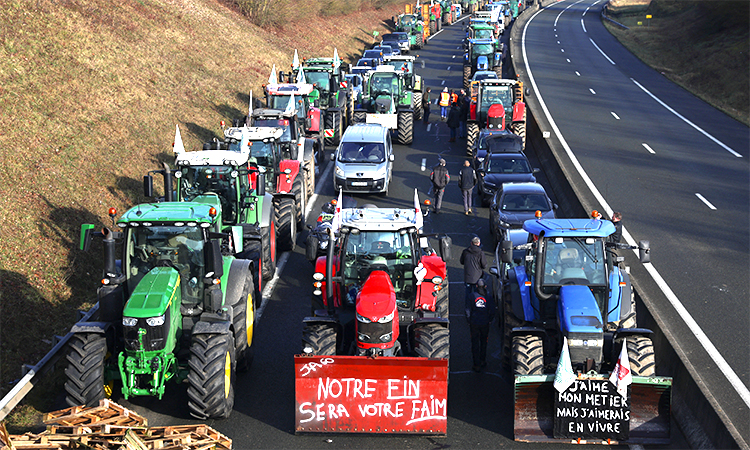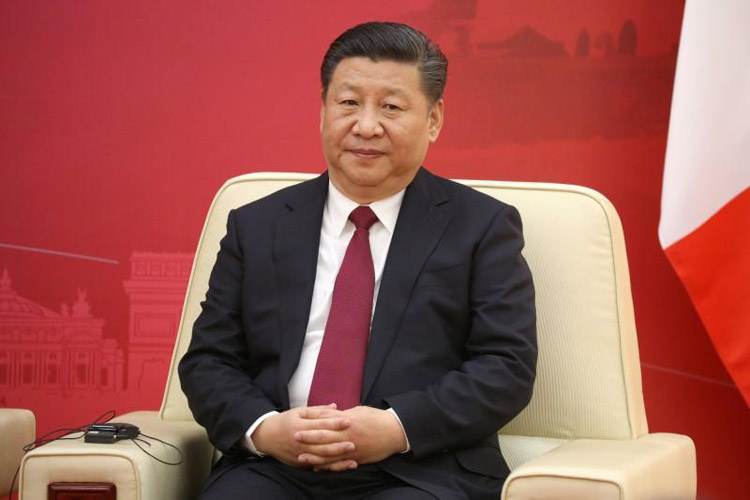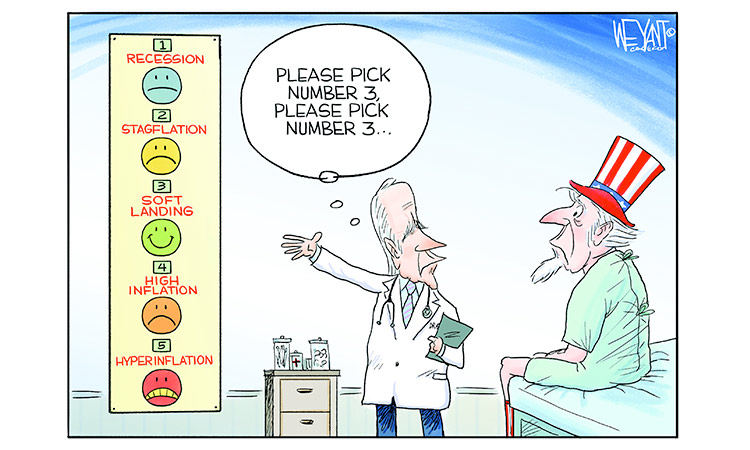Brazil’s Bolsonaro wreaks havoc on indigenous people
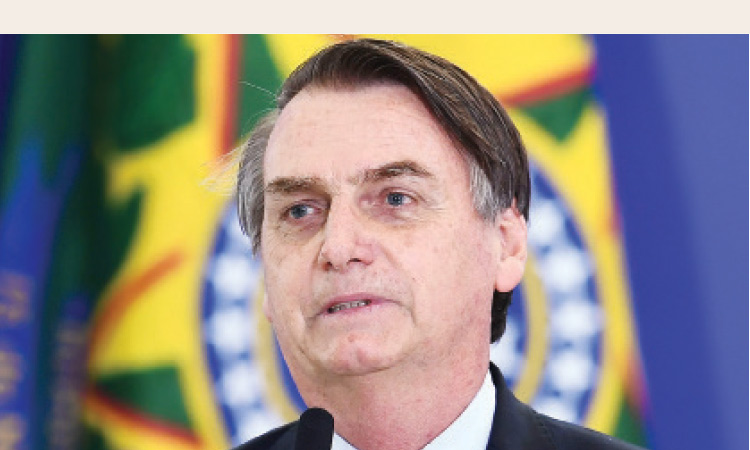
Jair Bolsonaro delivers a speech at the Planalto Palace in Brasilia. AFP
When Jair Bolsonaro became president of Brazil on January 1, the country’s indigenous peoples braced themselves for the worst. Bolsonaro had promised that not another centimetre of indigenous land would be protected under his leadership. He announced his intention to forcibly integrate indigenous peoples and said it was “a shame that the Brazilian cavalry wasn’t as efficient as the Americans, who exterminated the Indians”.
There are two important lessons we can take from the first 100 days of the Bolsonaro presidency. The first is that all fears were well-founded: his administration is launching an unprecedented attack on Brazil’s indigenous peoples with the explicit aim of destroying them, forcibly assimilating them and plundering their land.
The second is that, despite this, there is some hope that this assault can be stopped. Brazil’s institutions, courts and congress can provide legal and practical stops, if they have the will. Indigenous people are organising and mobilising against the onslaught on a local and national scale – and they have already won some notable victories.
On his first day in office, Bolsonaro took the responsibility for the demarcation and regulation of indigenous territories away from the Indigenous Affairs Department and handed it to the Ministry of Agriculture. This move was clearly intended to bring to a halt any further protection of indigenous lands, and has indeed done so. The president’s new agriculture minister is Tereza Cristina Corrêa da Costa Dias, a former head of the parliamentary agribusiness group, who accepted a campaign donation from a landowner previously charged with ordering the killing of an indigenous leader. The department official in charge of land issues is Nabhan Garcia, a right-wing former head of the Union of Democratic Ruralists who has fought against the demarcations of indigenous territory for decades.
But the new regulations are not yet set in law. The order stands for 120 days and then must pass through congress. As well as the legislature, the judiciary can play a key role in moderating the worst of Bolsonaro’s excesses. The Brazilian Socialist Party (PSB) filed a case with the Supreme Court at the end of January challenging Bolsonaro’s decision to give the agriculture ministry authority to determine reservation boundaries. The court has yet to rule on this particular case, but Brazil’s judges have shown they are willing to stand up to the president.
Very worryingly, however, the government has also threatened to withdraw Brazil from the key international law on tribal and indigenous peoples’ rights, known as ILO Convention 169. This would further weaken indigenous rights and remove important independent, international scrutiny. Brazil ratified Convention 169 in 2002; it has since been used in rulings by judges and by public prosecutors who have the constitutional obligation to prosecute the state when it violates indigenous rights.
The government has invoked “national security” to trample over the constitutional rights of indigenous people. The Waimiri Atroari tribe are objecting to a power line being built across more than 100 kilometres of their land without their consent, which, though it will transport electricity to cities such as Manaus, will not provide energy to tribal settlements within the reserve. The government has announced that the project will commence on June 30. Members of the tribe are still fighting the decision.
Bolsonaro is clear that “Brazil does not owe the world anything when it comes to environmental protection” and has changed the procedure for environmental licensing to make it easier to build on indigenous land. Several new mega-infrastructure projects have been announced, including a dam on the Trombetas River, a bridge over the Amazon river, and an extension of the 300 mile rainforest highway from the Amazon river to the Suriname border. But illegal land invaders don’t wait for legislation to pass or for judges to rule, and at least 14 indigenous territories are currently under attack. In what is essentially a frontier war, loggers, miners, oil extractors and cattle ranchers now, rightly, think the president is on their side. During the presidential campaign, deforestation surged by nearly 50 per cent, and land invasions increased by 150 per cent after he was elected in October last year.
Brazil is the deadliest country in the world for environmental defenders, but violence directed at indigenous people can’t be explained simply as a battle over resources: in many cases, it is quite obviously hate crime. On the night of Bolsonaro’s election victory, for example, a health centre and a school were firebombed on Pankararu lands in the northeast of the country.
There are dozens of reports from all over Brazil of what sometimes seems like open warfare against indigenous communities. In an attempt to stifle NGOs who oppose his interests, Bolsonaro has issued a decree that government authorities can “supervise, coordinate, monitor and accompany the activities and actions of international organisations and non-governmental organisations in the national territory”. Environmental groups have been threatened with expulsion and Ricardo Salles, the new environment minister, has tried to suspend all government partnerships with NGOs in the country for three months. He believes that protected Amazon areas hold up “development” and is advocating commercial farming and mining on indigenous reserves, including those where uncontacted tribes live, which would almost certainly wipe them out.
The administration even launched an attack on indigenous health. The regime proposed to end the indigenous healthcare system (Sesai), a decentralised care model with 34 special indigenous health districts, run in collaboration with local communities and tailored to their needs. Instead, indigenous patients would just access the same (already inadequate and over-stretched) municipal services as everyone else in the district. The proposal sparked outrage and protest among indigenous peoples all over the country. They are fearful for their lives – and especially those of their children and elderly. They are rightly worried about the lack of provision for indigenous languages and are concerned their needs could not be met by a system designed by and for people living very different lifestyles, with staff who knew nothing of their own circumstances.
So from Paraná to Rondônia, from Pernambuco to Mato Grosso do Sul, indigenous groups occupied public buildings and highways in support of Sesai. The minister backed down and made public assurances that the indigenous healthcare system would not be abolished after all, only a week or so after the proposition was first floated.
The importance of fighting alongside tribal people cannot be overstated: Brazil’s lawmakers, those judges, mayors, congressmen and others, are not deaf to voices raised around the world at injustices taking place on their watch.
The victory over healthcare is encouraging and important, but this is far from over. After all, this is only the first 100 days.
